Bachelor of Science [B.S] (International Business)
Field of Study:
₹20.8 L/Yr
Tuition Fees
| Year | 1st Year Fees |
|---|---|
| Tuition Fees | ₹2076480 (GBP 18000) |
Studying Biology, you investigate, describe and analyse the structures and functions of living organisms together with how they interact with the environment.
This BSc Biology with a Sandwich Year (Hons) programme from the University of Kent provides a broad survey of the various biological disciplines, including anthropology, biochemistry, cell and molecular biology, evolution, genetics, infection and immunity, microbiology, and the physiology of animals and plants.
The 'Sandwich Year' between Stages 2 and 3, provides an excellent opportunity to gain relevant work experience in industry in the UK or abroad. During your placement you are paid by your employer and produce an independent research project.
Opportunities are also available to work in one of our research labs during the summer vacation after your second year. The Stacey Fund provides funding for 20 to 30 eight-week Summer Studentships annually. These optional projects offer an ideal opportunity to gain further hands-on research experience.
Our related programme, Biology with a Year Abroad, includes one year studying abroad.
Independent rankings
In the National Student Survey 2015, 96% of students in the School of Biosciences were satisfied with the overall quality of their course. Furthermore, at a subject level, the School of Biosciences is ranked in the top 20% in The Guardian University Guide 2016, and in the top 25% in The Complete University Guide 2016.
Careers
- Our students are in high demand after graduation. Our emphasis on laboratory skills and the teaching of biology at a molecular level allows students to successfully compete for graduate training positions and research-based employment and the Sandwich Year option will further enhance your employability in these areas by providing you with a period of professional practice. Also, the analytical and problem solving skills we teach are attractive to a wide range of careers outside of science.
- Recently, our graduates have gone into jobs in lab-based research, government agencies, teaching, scientific publishing, marketing and information technology. Typically, about 30% of our biology graduates take a higher degree after graduation, either a one-year MSc or a three/four year PhD.
Professional recognition
- Our Biology degree programme is accredited by the Society of Biology (SOB).
Teaching & Assessment
- Teaching includes lectures, laboratory classes, workshops, problem-solving sessions and tutorials. You have an Academic Adviser who you meet with at regular intervals to discuss your progress, and most importantly, to identify ways in which you can improve your work further so that you reach your full potential.
- Most modules are assessed by a combination of continuous assessment and end-of-year exams. Exams take place at the end of the academic year and count for 50% or more of the module mark. Stage 1 assessments do not contribute to the final degree classification, but all stage 2 and 3 assessments do, meaning that your final degree award is an average of many different components. On average, 29% of your time is spent in an activity lead by an academic; the rest of your time is for independent study.
- The Sandwich Year is assessed by a presentation and a written report and contributes 10% to the overall mark.
Programme aims
The programme aims to:
- instil a sense of enthusiasm for the application of different methods and disciplines to biology, confront the scientific, moral and ethical issues and engage in critical assessment of the subject material covered
- provide a broad and balanced foundation of the science that underpins biology and methodology in a modern society including a detailed knowledge of the biological techniques and methods of assay, analysis and examination used by biologists and biomolecular and organismal knowledge required for understanding of life at all levels of complexity
- provide a stimulating, research-active environment in which students will be supported and motivated to achieve their academic and personal potential
- educate students in the theoretical and practical aspects of biology
- provide students with the ability to undertake an independent research project
- prepare students for further study, or training, and employment in biology and non-biology based careers, by developing their transferable and cognitive skills
- develop the qualities needed for employment in situations requiring the exercise of professionalism, independent thought, personal responsibility and decision making in complex and unpredictable circumstances
- provide an opportunity to gain experience as a biologist working in a professional environment such as industry, hospital research laboratories and government research laboratories
- develop employment-related skills, including an understanding of how to relate to the structure and function in an organisation, via a sandwich year
- provide access to as wide a range of students as practicable.
TOP Scholarships
| Scholarship name | Award amount | Eligibility |
|---|---|---|
| - | - | - |
| - | - | - |
| - | - | - |
Key Resources for Your Study Abroad Journey
Scholarship Grants & Financial Aids
| Name | Scholarship Per Student | Level of Study | Type | |
|---|---|---|---|---|
| BrokerFish International student scholarship | Scholarship per student₹ 1.2 L/Yr$1,000 | Level Of StudyBachelor | TypeMerit-Based | |
| UWL International Ambassador Scholarship | Scholarship per student₹ 7.4 L/Yr$6,447 | Level Of StudyBachelor | TypeCollege-Specific | |
| QS scholarships | Scholarship per studentVariable Amount | Level Of StudyBachelor | TypeMerit-Based | |
| VueVille Future Technology Scholarship | Scholarship per student₹ 1.2 L/Yr$1,000 | Level Of StudyBachelor | TypeMerit-Based | |
| Monica Cole Research Grant | Scholarship per student₹ 1.5 L/Yr$1,291 | Level Of StudyApprenticeship | TypeMerit-Based | |
| 1st Formations Business Scholarship | Scholarship per student₹ 92,288/Yr$800 | Level Of StudyBachelor | TypeMerit-Based |
Similar Programs
| Program | Important Date | Total Fees | Median Exams Score | Action |
|---|---|---|---|---|
-- | INR 20.8 L/Yr GBP 18,000 /Yr |
|
Do you think the Dates are wrong ? Report Here
Similar Colleges
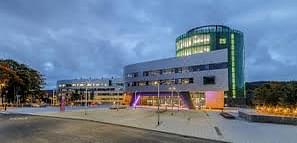

Robert Gordon University


University of Aberdeen
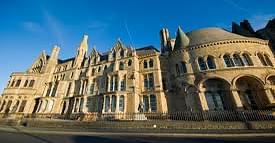

Aberystwyth University
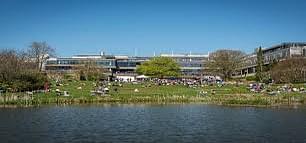

University of Bath
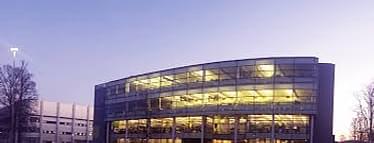

Cranfield University
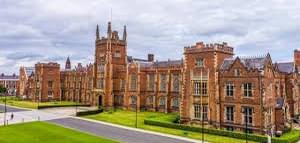

Queen's University Belfast


Ulster University
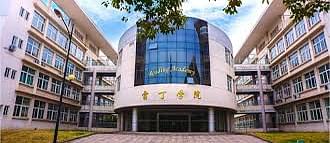

University of Reading
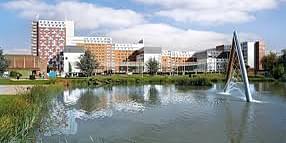


























Comments